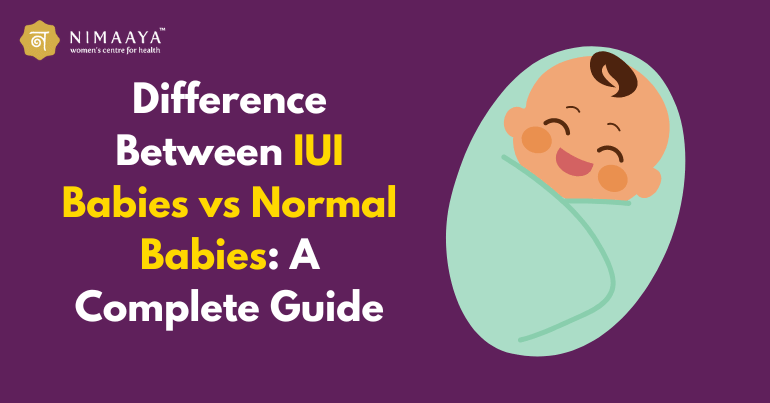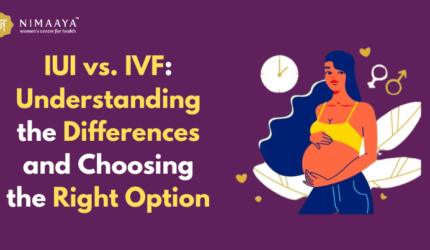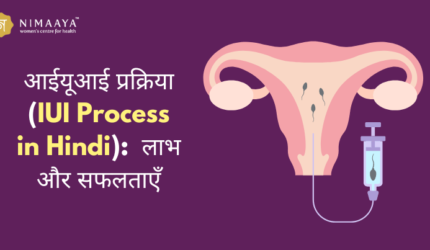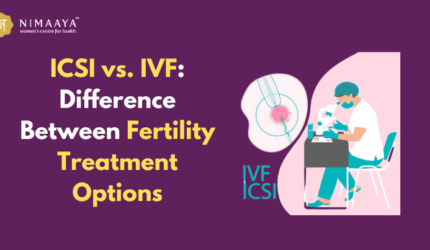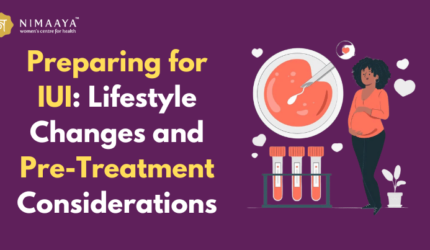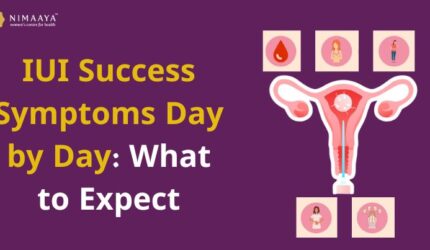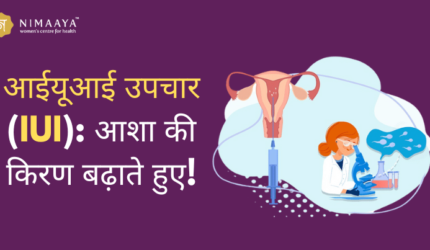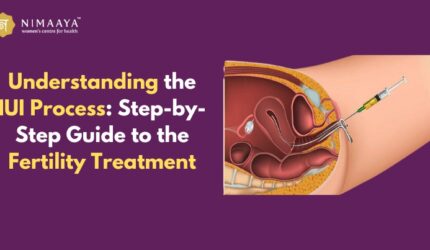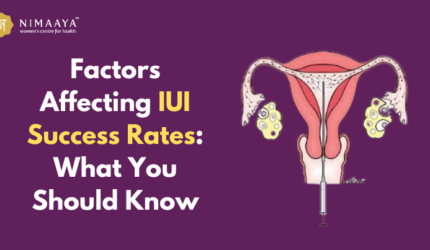Introduction
In today’s world, assisted reproductive technologies have become a beacon of hope for many couples struggling with infertility. Among these technologies, Intrauterine Insemination (IUI) stands out as a popular and relatively less invasive option. As more parents opt for treatments of IUI, questions often arise about the differences between IUI babies vs normal babies. This comprehensive guide aims to demystify these differences, providing clarity for prospective parents considering IUI. We will delve into the key aspects that differentiate IUI-conceived children from those conceived naturally. From health and development to emotional well-being, this guide covers it all. By the end, you will have a thorough understanding of what to expect with IUI babies vs normal babies, helping you make an informed decision about your fertility journey.
Understanding IUI
Intrauterine Insemination (IUI) is a fertility treatment that involves placing sperm directly into a woman’s uterus during her ovulation period. This procedure increases the chances of sperm reaching the egg and thereby fertilizing it. Couples typically opt for IUI due to male infertility issues, cervical mucus problems, or unexplained infertility.
The Process of IUI is relatively straightforward and less invasive compared to other fertility treatments like IVF. Understanding what IUI is sets the stage for exploring its intricacies. Beyond its technical definition, IUI represents hope for couples navigating fertility challenges. With its focus on enhancing the natural process of conception, IUI offers a promising path toward realizing the dream of parenthood.
Preparing for IUI: Essential Steps for Success
IUI Preparation is a crucial phase that significantly influences the success of the procedure. It begins with thorough medical evaluations of both partners to ensure they are suitable candidates for IUI. Women may be prescribed ovulation-inducing medications to increase the number of mature eggs available for fertilization.
Accurate timing is essential, often achieved through ovulation kits or ultrasound monitoring, to pinpoint the optimal insemination period. Lifestyle adjustments, such as maintaining a healthy diet, managing stress, and avoiding harmful substances, are also recommended to enhance fertility. With meticulous preparation, couples can maximize their chances of achieving a successful pregnancy through IUI.
How Are Normal Babies Conceived?
These are babies conceived in normal or natural fashion, unassisted sexual intercourse in which the sperm fertilizes the egg in the fallopian tube. It is theoretically the most common way conception occurs and requires no medical interventions.
Exploring Effective Treatment Options for IUI
Intrauterine Insemination (IUI) is a widely utilized fertility treatment designed to help couples conceive. Given the success and popularity of IUI Treatments, it’s essential to explore the various options available to maximize the chances of a successful pregnancy. Understanding the different approaches and preparations can provide couples with the best possible outcomes.
Treatments of IUI involve placing sperm directly into a woman’s uterus during her ovulation period, significantly increasing the chances of fertilization. This method is often recommended for couples experiencing unexplained infertility, mild male factor infertility, or issues with cervical mucus.
1. Ovulation Induction
Medication is used to encourage the ovaries to produce numerous eggs, a process known as ovulation induction. This increases the likelihood of successful fertilization. Common medications used include Clomiphene Citrate (Clomid) and Gonadotropins. Monitoring through ultrasounds and blood tests is crucial to ensure the timing is perfect for insemination.
2. Timing Intercourse
For couples opting for a more natural approach, timing intercourse to coincide with the woman’s ovulation period can enhance the effectiveness of IUI Treatment. This approach may involve the use of ovulation predictor kits (OPKs) or regular ultrasound monitoring by a fertility specialist.
3. Sperm Donation
In cases where male infertility is a significant factor, using donor sperm can be an effective option. Sperm donors undergo rigorous screening for genetic, infectious, and other health issues, ensuring high-quality sperm for IUI. This method can provide a viable solution for many couples, leading to successful pregnancies.
4. Lifestyle Modifications
Making healthy lifestyle changes can significantly impact the success of IUI treatments. Recommendations include: Maintaining a healthy weight, Following a balanced diet rich in fruits, vegetables, and lean proteins, Reducing alcohol and caffeine intake, Avoiding smoking and recreational drugs, Managing stress through relaxation techniques or counseling; These changes can improve both sperm and egg quality, thereby increasing the chances of a successful pregnancy.
Exploring effective treatment options for IUI is crucial for couples seeking to enhance their chances of conception. From ovulation induction and timing intercourse to considering sperm donation and making lifestyle modifications, various strategies can improve the success rates of IUI treatment. With thorough preparation and the guidance of a skilled fertility specialist, many couples can look forward to the joy of parenthood, reassured that IUI babies are normal and healthy in every way.
The IUI Process Explained
The Process of IUI(Intrauterine Insemination) is a fertility treatment designed to increase the chances of pregnancy for couples facing various infertility challenges. It involves the direct placement of sperm into a woman’s uterus during her ovulation period, thereby facilitating sperm and egg interaction. Here’s a detailed look at each step of the IUI Process, guided by an IUI Specialist:
1. Ovulation Monitoring:
The first step in the process of IUI is monitoring the woman’s menstrual cycle to pinpoint the exact time of ovulation. This can be done using ovulation predictor kits, blood tests to measure hormone levels, or ultrasound examinations of the ovaries.
2. Sperm Collection and Preparation:
On the day of the IUI procedure, a sperm sample is collected from the male partner or a sperm donor. This sample is then processed in the laboratory to concentrate the healthiest sperm and remove any impurities. The goal is to obtain a sample with highly motile sperm, increasing the chances of successful fertilization.
3. Ovulation Induction:
Sometimes, medications are prescribed to stimulate ovulation Induction and ensure the release of one or more eggs. IUI experts will determine the necessity and type of medication based on the woman’s specific needs and fertility challenges.
4. Insemination:
During the actual insemination, the prepared sperm sample is inserted directly into the uterus using a thin, flexible catheter. Normally no discomfort is involved in this treatment, and anesthesia is unnecessary. Usually, the entire procedure takes a few minutes.
5. Post-Insemination Care:
After the insemination, the woman may rest briefly before resuming normal activities. The IUI experts may schedule follow-up appointments to monitor the progress and determine if the procedure was successful, typically through blood tests and ultrasounds.
The involvement of IUI experts is crucial throughout the Process of IUI. These experts provide guidance, perform the necessary procedures, and monitor the couple’s progress, significantly enhancing the likelihood of a successful pregnancy.
Key Differences Between IUI Babies and Naturally Conceived Babies
When discussing the topic of IUI babies vs normal babies, it’s important to highlight the primary differences while reassuring prospective parents about the overall health and development of their children. Here, we delve into the key distinctions between babies conceived through Intrauterine Insemination (IUI) and those conceived naturally.
1. Conception Method
IUI Babies:
These babies are conceived through a medical procedure where sperm is directly inserted into the uterus around the time of ovulation. This method is often chosen to overcome specific fertility issues such as low sperm count, unexplained infertility, or cervical mucus problems.
Naturally Conceived Babies:
These babies are conceived through natural sexual intercourse without any medical intervention. The sperm fertilizes the egg within the woman’s body under natural conditions.
Key Distinction:
Normal conception occurs spontaneously without medical assistance, whereas IUI is a medically assisted procedure.
2. Fertility Treatments and Preparations
IUI Babies:
The conception involves thorough medical evaluations, often including genetic screening of the sperm donor, ovulation induction with medications, and precise timing for insemination. This rigorous preparation aims to maximize the chances of successful fertilization and pregnancy.
Naturally Conceived Babies:
Conception occurs naturally without the need for medical preparations or interventions. The timing and success of fertilization depend on the couple’s natural fertility cycles.
3. Genetic Screening
IUI Babies:
When donor sperm is used, genetic screening is typically performed to reduce the risk of hereditary disorders. This step can offer parents additional peace of mind about the health of their future child.
Naturally Conceived Babies:
Genetic screening is not a standard part of natural conception. Any genetic concerns would typically be addressed only after conception through prenatal testing if indicated.
Key Point:
Except in cases where donor gametes are utilised, genetics remains largely constant.
Also Read: Genetic Screening: A Comprehensive Guide
4. Psychological and Emotional Factors
IUI Babies:
Parents who undergo treatments for IUI often experience a heightened sense of anticipation and emotional investment due to the planned nature of the conception process. The journey can be emotionally intense but ultimately rewarding.
Naturally Conceived Babies:
The emotional experience of natural conception can vary widely among couples. While some may experience stress related to timing and fertility, others may conceive with relative ease and minimal emotional strain.
Key Point:
Psychological development is more influenced by parenting and environment than the mode of conception.
5. Social and Cultural Perceptions
In many cultures, especially in conservative societies, couples who conceive via assisted means may face stigma or unwarranted judgment.
However:
- Awareness and acceptance of ART are increasing.
- More couples openly share their fertility journeys today, reducing the taboo.
- Clinics now offer counseling and support for both emotional and social well-being.
Key Point: While societal attitudes may vary, acceptance is growing, and education is key to breaking misconceptions.
6. Pregnancy and Birth Outcomes
Various studies have delved into the possibilities of IUI pregnancies being diametrically different from natural pregnancies about risks or outcomes.
IUI Risks
- Slightly higher odds of multiple births if fertility drugs stimulate more than one egg.
- Slightly increased risk of low birth weight or preterm delivery in some cases, but far less than that in IVF.
- The use of ovulation-inducing drugs could lead to OHSS.
Normal Pregnancy Risks
- Typically, lower risks, yet complications can still occur due to lifestyle, age, or existing conditions.
Key Point:
Even though IUI pregnancies have a slightly elevated risk, these are generally manageable under proper medical supervision.
7. Health and Development
IUI Babies:
Studies have consistently shown that IUI babies are common in terms of health and development. They generally meet physical, cognitive, and emotional milestones at the same rates as naturally conceived babies. Long-term health outcomes for IUI babies are comparable to those of their naturally conceived peers.
Naturally Conceived Babies:
These babies follow typical developmental patterns without the context of fertility treatments. Their health and developmental milestones are determined by genetic and environmental factors, similar to IUI babies.
The key differences between IUI babies vs normal babies lie primarily in the method of conception and the preparatory steps involved in achieving pregnancy. Despite these differences, both groups of babies exhibit similar health, development, and long-term outcomes. Understanding these distinctions can help alleviate concerns and provide reassurance to parents considering or undergoing treatments of IUI.
Key Point:
IUI babies are just as healthy as naturally conceived babies in most scenarios.
8. Disclosure to the Child
Should parents tell their children they were conceived through IUI?
- If both biological parents are involved, there is typically no need for disclosure, as the child is genetically related to both.
- In donor scenarios, experts recommend being honest but age-appropriate in disclosure.
- Early openness fosters trust and identity clarity.
Key Point: Disclosure is a personal decision, but it is important in donor-based IUI.
Ensuring the Safety of IUI Babies
Some common concerns among prospective parents are whether IUI babies are normal and healthy, and is iui safe for babies. Research consistently shows that IUI babies are very normal in terms of physical, cognitive, and emotional development. Studies indicate no significant differences between IUI babies vs normal babies. Proper medical oversight during treatments of IUI ensures the health and safety of both the mother and the baby.
When Should Couples Consider IUI?
- If attempts to conceive have exceeded a year without success, it has been 6 months for those over 35.
- The male partner has a low sperm count.
- A diagnosis of PCOS, endometriosis, or other female infertility conditions is made.
- Those of the same sex or a single individual intending to become parents.
Ethical and Legal Considerations
- Since 2021, IUI has been guided by the Assisted Reproductive Technology (Regulation) Act in India.
- Sperm donors need to remain anonymous and undergo a strict screening process.
- Clinics should be registered and must adhere to ethical principles to guarantee safe and responsible care.
Conclusion:-
In the debate about IUI babies vs normal babies, the differences lie mainly in the conception method rather than the babies themselves. IUI is a safe and effective option for many couples, leading to the birth of healthy and normal children. With proper preparation, the guidance of a skilled IUI specialist, and emotional support, couples can navigate the journey of IUI treatment in Surat with confidence and hope.
Whether considering IUI or already on the path, understanding the process, benefits, and outcomes can empower couples to make informed decisions. With the help of clinics like Nimaaya IVF Center for IVF and IUI Treatment in Surat, many people can realize their dream of becoming parents.
FAQ
Q: Are IUI babies healthy like normal babies?
Yes. Studies show that IUI babies are typically just as healthy at birth and during development as naturally conceived babies.
Q: Is there a higher chance of birth defects in IUI babies?
There is no significant difference. The risk is nearly the same as in natural conception, especially when using the couple’s gametes.
Q: Do IUI babies face emotional or psychological issues growing up?
Not due to the conception method. Emotional development depends on parenting and environment, not how the child was conceived.
Q: Is IUI the same as IVF?
No. IUI involves placing sperm inside the uterus; IVF involves fertilizing the egg outside the body in a lab.

